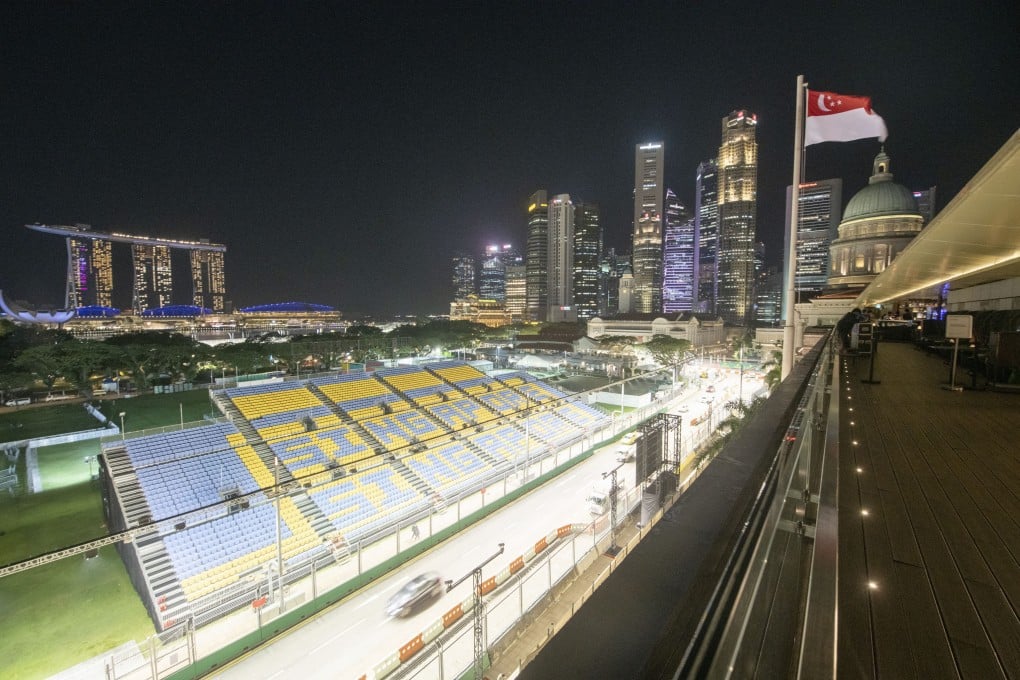Advertisement
‘Singapore is back’: Milken Institute Asia Summit, Token2049, F1 race and other events draw global VIPs
- Officials such as Singapore Senior Minister Tharman Shanmugaratnam among speakers at three-day business forum aimed at tackling global issues
- Series of events culminating in Sunday’s Singapore Grand Prix shows city state’s ‘ability to stage world-class, high-quality events remains undimmed’
Reading Time:3 minutes
Why you can trust SCMP
9

Singapore sent a clear message of its reopening after a two-year pandemic hiatus as some 1,200 guests, including government officials and top executives from more than 25 nations, gathered in the city state on Thursday for the Milken Institute Asia Summit.
Officials speaking at the three-day event include Malaysian Finance Minister Zafrul Tengku Abdul Aziz and Singapore Senior Minister Tharman Shanmugaratnam.
Hollywood stars Henry Golding and Sima Taparia, who starred in Netflix hit series Indian Matchmaking, and Korean-American singer Eric Nam also made an appearance.

The summit, which aims to tackle global issues such as climate change, diversity and economic inequalities, is part of a string of high-profile events taking place in Singapore this week that culminates with the Formula One Singapore Grand Prix on Sunday.
Advertisement
Organisers of the night race have said they are confident the turnout will match 2019’s, at 268,000, the largest since the inaugural night race in 2008 at 300,000.
The week began with the Forbes Global CEO Conference, which included speakers such as Asia’s richest man Gautam Adani and Indonesian minister for state-owned enterprises Erick Thohir.

Token2049, a two-day cryptocurrency event that started on Wednesday, was also expected to draw thousands of entrepreneurs, investors and enthusiasts to the city state.
Advertisement
Select Voice
Select Speed
1.00x